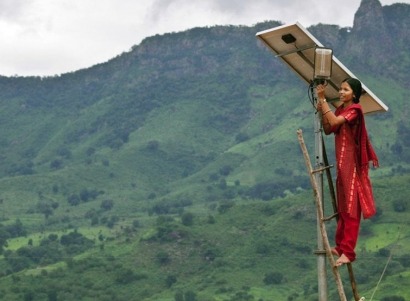
Decentralised renewable energy solutions would create jobs in rural areas along with providing energy access to remote communities. More than 1.3 billion people do not have access to electricity, 45 per cent of which live in Africa and 50 per cent in Asia.
The report shows that small-scale renewable energy technologies are well adapted to the rural context, as the bulk of skills required can be developed locally, limiting reliance on foreign expertise. “There is considerable employment potential in the downstream linkages, particularly in the distribution, sales, installation, operation, and service of such systems, which can be enhanced if well integrated with local commercial activities,” says Adnan Z. Amin, IRENA's Director-General. Increased income, industrial development and job creation have often been cited as additional benefits of decentralised renewable energy deployment.
The report, entitled “Renewable Energy Jobs and Access”, examines job creation in the context of rural access to energy, which to date has received scant attention. It presents twelve original case studies from Central America, Sub-Saharan Africa and Asia involving a variety of renewable energy technologies, including biogas, solar, small-scale hydropower and improved cookstoves. The case studies highlight linkages between local job creation and renewable energy, such as integration of the renewable energy sector into local economies, skills and training, gender impacts and standards and quality assurance measures. The report is intended to help policy makers design and implement successful rural energy strategies.
“Renewable Energy Jobs and Access” was released on the occasion of the third meeting (5-6 June 2012) of IRENA’s Council. It is part of an on-going series of IRENA studies examining the socio-economic impact of renewable energy.
[Editor's note: A Working Paper (32 pages, English only) on “Renewable Energy Jobs: Status, Prospects and Policies” can be downloaded here]
For additional information:

